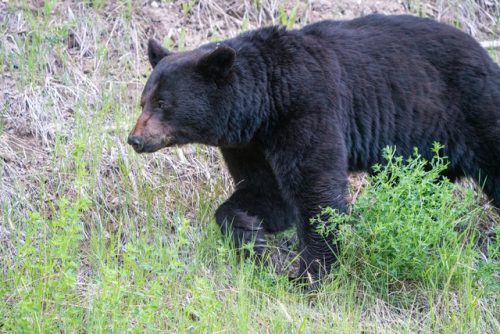
Ontario has one of the largest black bear populations in North America, with the bulk of this population located in north and central Ontario.
The black bear is an intelligent and powerful animal, at the top of the food chain. They often remember where a food source is and return to the same spot.
They can become accustomed to human populated areas as a source for food, causing problems for everyone. It is for this reason that you should never attempt to feed a bear, or leave scraps or food on the ground and in tents at your campsite.
Most human-bear encounters result in no damage to people or their property; they are often just passing through or curious. Due to their power and size it is best to be bear wise when back country camping, or hiking.
Seeing a black bear in the wild is a memorable event, most often they become startled and run away.
Adult male black bear can weigh up to 280kg and females are smaller up to 182kg. Black bear are surprisingly agile for their size and when running can reach speeds of up to 55km/h.
Black Bear are omnivores, meaning they eat both vegetation and meat. The majority of their diet is
made up of leaves, twigs, shoots, roots and berries. They also survive off of insects, fish, carrion and
young moose or deer in the spring. The black bear is constantly searching for food, and is an opportunistic feeder if they come across garbage or scraps. They can be very persistent in sourcing their food, especially at garbage dumps and campsites.
When hunting Black Bear it is advisable to be in the company of an experienced guide or outfitter, for both safety and success. The fall bear hunt begins after Labor Day and closes October 15. It is important that hunters are aware of current regulations and have a valid outdoors card/hunting license.
Most accommodation providers in our region can connect you with a bear guide/outfitter.




